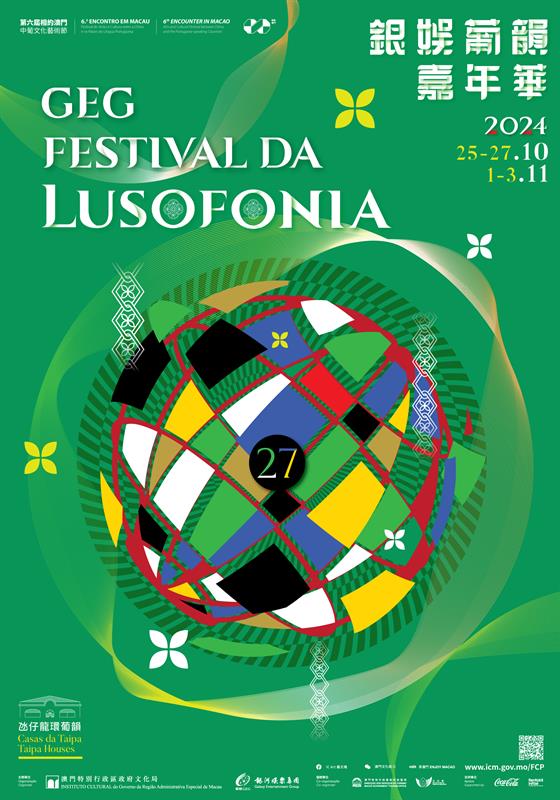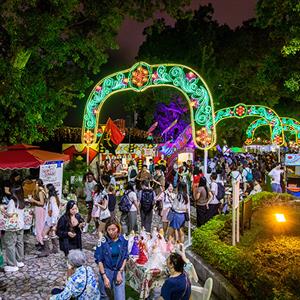Organized by the Cultural Affairs Bureau and the Galaxy Entertainment Group, and Co-organized by the Macao Government Tourism Office and the Municipal Affairs Bureau, the 2024 GEG Lusofonia Festival will take place in parallel with the 6th Encounter in Macau – Arts and Cultural Festival between China and the Portuguese-speaking Countries, leverage the bridging role of Macao as “a base for exchange and cooperation where diverse cultures coexist with Chinese culture as the mainstream”, and advance the establishment of Macao as a cultural exchange centre for China and the Portuguese-speaking countries. In this edition of the Lusofonia Festival, greater emphasis will be placed on promoting the culture of Goa, Damão and Diu, so a Chef and a Temporary Tattoo Artist from these territories were invited to hold Gastronomy and Temporary Tattoo presentation at the Festival space.
In order for local residents and tourists to have a deeper knowledge of the traditions, customs and unique culture of Portuguese-speaking Countries and Regions, this year, for the first time, the Lusofonia Festival period was extended to two weekends.
Cultural Booths from local Portuguese-speaking Communities from Angola, Brazil, Cape Verde, Guinea Bissau, Goa, Daman and Diu, Mozambique, Portugal, San Tome and Príncipe, East Timor and the Macanese community will be represented at the event, in which they will make themselves known to the public the music, dance, art, crafts, traditional costumes, literature, tourist information and even the snacks and drinks typical of their countries or regions.
For this 27th edition of the Lusofonia Festival, artists from 10 Portuguese-speaking Countries and Regions were invited, namely the Portuguese singer Fernando Daniel, the Angolan singer Yuri da Cunha, the Mozambican singer Selma Uamusse, the Brazilian singer Filipe Toca, the Cape Verdean musical group Ferro Gaita, Guinean singer Nené Pereira, the music and dance group from Goa, Daman and Diu, Daman Darshan, the Timorese dance group Le-Ziaval, the Equatorial Guinea dance group GE Dancers and the Grupo Cultural 100% Santola from San Tome and Principe. These 10 invited artists together with around 35 local Portuguese-speaking artists will provide audiences with different genres of music and dance on the main stage at the Taipa Amphitheater, and also light music on the stage installed in Largo do Carmo throughout the 6 days of the Festival.
The Festival's temporary restaurant, operating in the Taipa Municipal Garden, will serve grilled food and typical Portuguese specialties, while at Largo do Carmo, specialties from the various participating countries/regions will be served at dinner. There will be also a temporary kiosk serving typical Portuguese snacks and drinks next to the entrance to the Taipa Houses.
Furthermore, on Saturday and Sunday afternoons, visitors of all ages can also participate in the Portuguese Traditional Games, namely the ski race, sack race, wooden spoon race, climbing the tallow stick, tug of war, throwing the ball, rings on the crosspiece, amongst others. On both weekends, Table Football Tournaments will be held for adults over 16 years old and for young people up to 15 years old, registrations for which can be made on the information booth at the event location. On Saturday and Sunday afternoons, there will also be several recreational games open to children.
Over the years, the Lusofonia Festival has become an important event for sharing the culture of Portuguese-speaking communities with Chinese culture, revealing Macau's role as a platform for cultural exchange between China and Portuguese-speaking countries.


2024 GEG Lusofonia Festival
Is there anything wrong with this page?

